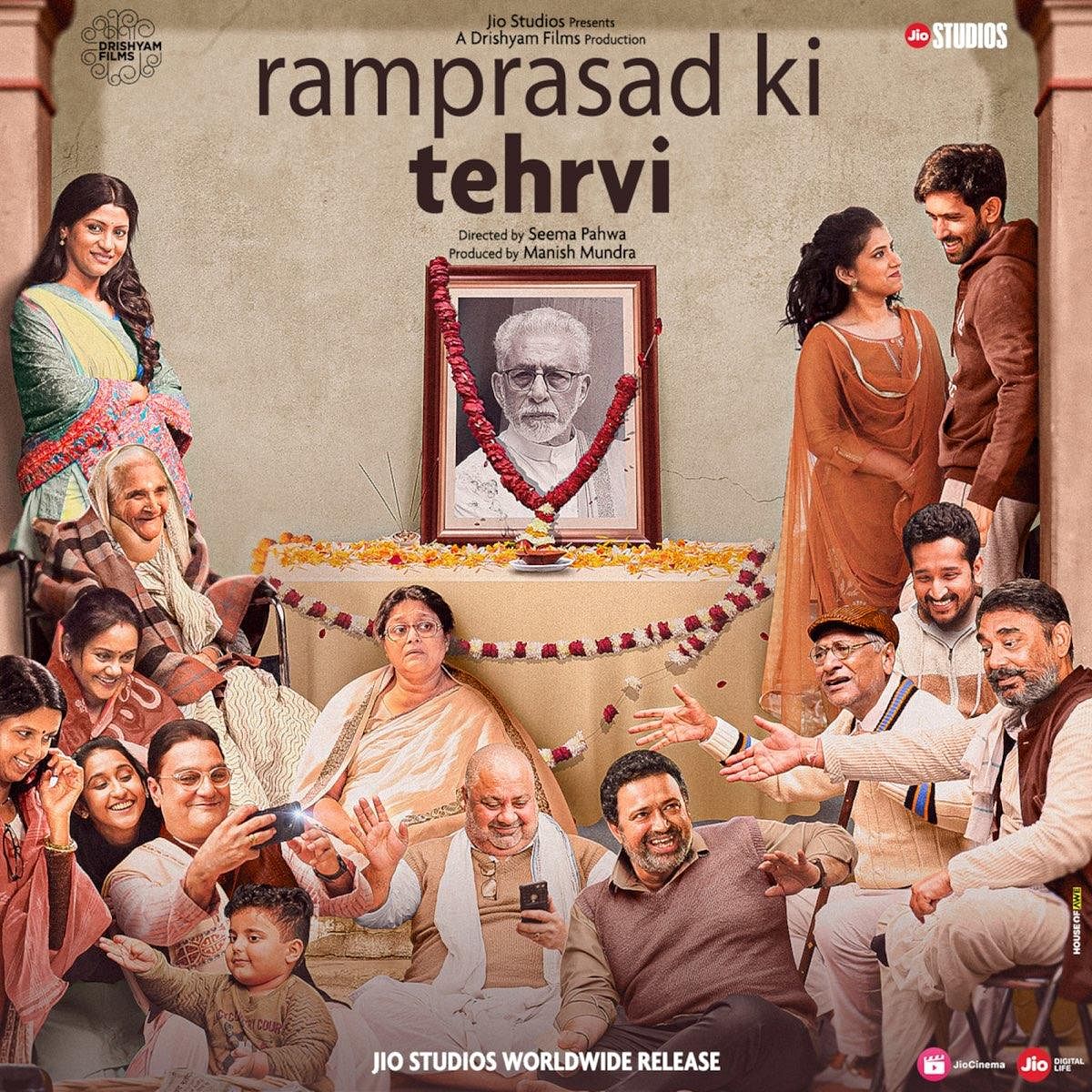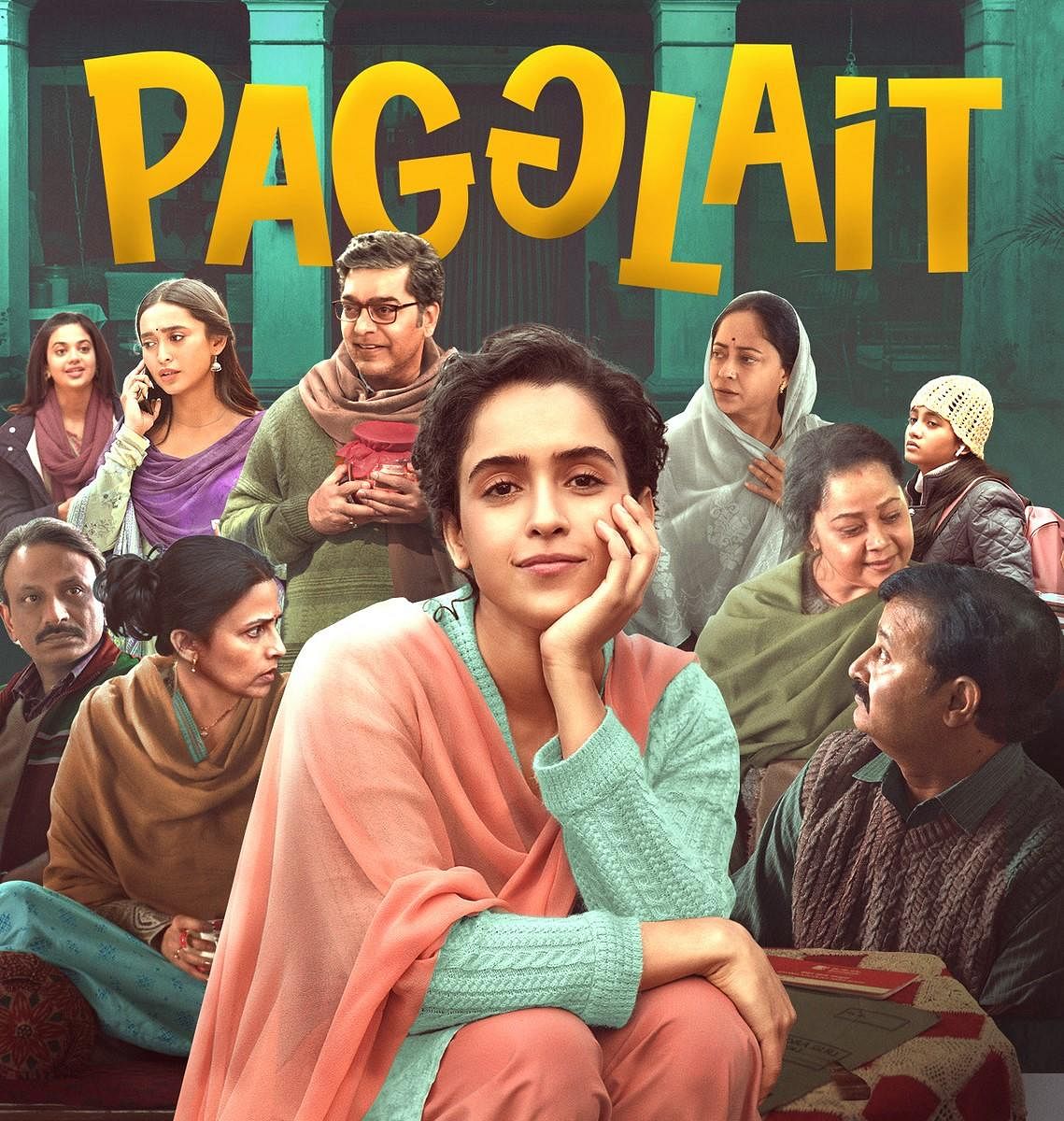
‘Pagglait’, the poignant Hindi social drama that dropped on Netflix last week, was in the news for the right reasons before landing in a plagiarism controversy.
Senior actor Seema Pahwa, whose directorial debut ‘Ramprasad Ki Tehrvi’ garnered critical acclaim earlier this year, felt ‘Pagglait’ closely resembled her film. “I was quite upset after watching the film. The film was shot after us and by then a lot of people had watched our film. So they knew the concept already. I thought the ‘Pagglait’ team could have tweaked the script,” she said.
‘Ramprasad Ki Tehrvi, which hit the screens on January 1, premiered at the MAMI Film Festival two years ago. Interestingly, Netflix has delayed the film’s streaming after promising a March 31 release. Seema said there was no communication from Netflix on why the release was put on hold.
So how similar are the two films? Caution: spoilers ahead. Both the movies, set in Lucknow, begin with death and deal with widowhood. In ‘Ramprasad Ki Tehrvi’, the head of the family (Naseeruddin Shah) is no more while in ‘Pagglait’, a man in his mid-20s has passed away.
The uncanny similarity is the quirky nature of the family members and their aversion to traditional post-death rituals. As is the case in small towns, women do all the work. The films also show how the gossiping family members have an eye on the dead man’s money.
But what makes the films’ chalk and cheese is the writing of the female leads. In ‘Ramprasad Ki Tehrvi’, Amma, performed excellently by Supriya Pathak, is grief-stricken. She sulks, dreading loneliness and reminisces the best days with her husband.
In ‘Pagglait’, Sanya Malhotra plays a young widow, who is emotionally detached from the incident. So much so that she doesn’t hesitate to ask for a cool drink even as others are mourning. There is a reason for her bizarre responses. It was a brief marriage with zero spark.
It’s a great premise. It’s only after his death that she starts knowing more about her husband. And slowly, she gets to know herself and what she wants from life.
Both the movies are hard-hitting and expose society’s deep-rooted patriarchy. They realistically portray the traits of dysfunctional families. But ‘Ramprasad Ki Tehrvi’, despite fine acting by theatre stalwarts, doesn’t go beyond this. ‘Pagglait’ feels complete because it boldly celebrates life and freedom after addressing the challenges thrown by an unexpected death.
Expectedly, the films end after the 13th day death ceremony. As curtains fall, one leaves you gloomy while the other keeps your spirits high. Nobody is sure if the similarities are a mere coincidence. But the films definitely have many talking points.
